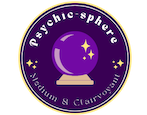Horoscopes have long captivated the human imagination, offering glimpses into the cosmic forces that shape our destinies. From ancient civilizations to modern societies, people have turned to the stars in search of guidance, reassurance, and a deeper understanding of themselves and the world around them. But what exactly is an horoscope, and how does it influence our lives?
The Basics of Horoscopes
At its core, an horoscope is a map of the heavens at the moment of a person’s birth, typically based on the positions of the sun, moon, planets, and stars. This celestial snapshot is then interpreted by astrologers to provide insights into an individual’s personality traits, life path, and future prospects. Whether through sun sign horoscopes, which focus on the position of the sun at the time of birth, or more complex astrological charts, horoscopes offer a glimpse into the cosmic blueprint of our lives.
Navigating the Zodiac
Central to the practice of astrology is the zodiac—a 12-fold division of the celestial sphere, each segment corresponding to a specific constellation. Each zodiac sign is associated with unique personality traits, strengths, weaknesses, and tendencies, based on the position of the sun at the time of birth. From the fiery passion of Aries to the intuitive empathy of Pisces, the zodiac provides a rich tapestry of archetypal energies that shape our individuality and influence our interactions with the world.
The Role of Astrology in Daily Life
For many, consulting their horoscope has become a daily ritual—a source of insight, inspiration, and affirmation. Whether through newspaper columns, online websites, or personalized readings from professional astrologers, horoscopes offer guidance on everything from love and relationships to career, finance, and personal growth. By understanding the cosmic energies at play in their lives, individuals can make informed decisions, navigate challenges, and seize opportunities with confidence and clarity.
Skepticism vs. Belief
Of course, horoscopes are not without their skeptics, who dismiss astrology as mere superstition or pseudoscience. While it’s true that the scientific validity of astrology is a matter of debate, many enthusiasts argue that its value lies not in empirical evidence but in its capacity to provide meaning and insight in a chaotic and uncertain world. Whether one chooses to believe in the predictive power of the stars or simply enjoys horoscopes as a form of entertainment, the appeal of astrology remains undeniable for millions around the globe.
Conclusion: Finding Meaning in the Cosmos
In an increasingly complex and fast-paced world, horoscopes offer a unique window into the mysteries of the universe. By exploring the depths of the zodiac and consulting the wisdom of the stars, individuals can gain a deeper understanding of themselves, their relationships, and their place in the cosmos. Whether seen as a form of divination, a tool for self-reflection, or simply a source of comfort and inspiration, horoscopes continue to fascinate and captivate, inviting us to unlock the secrets of our own destinies written in the stars.
